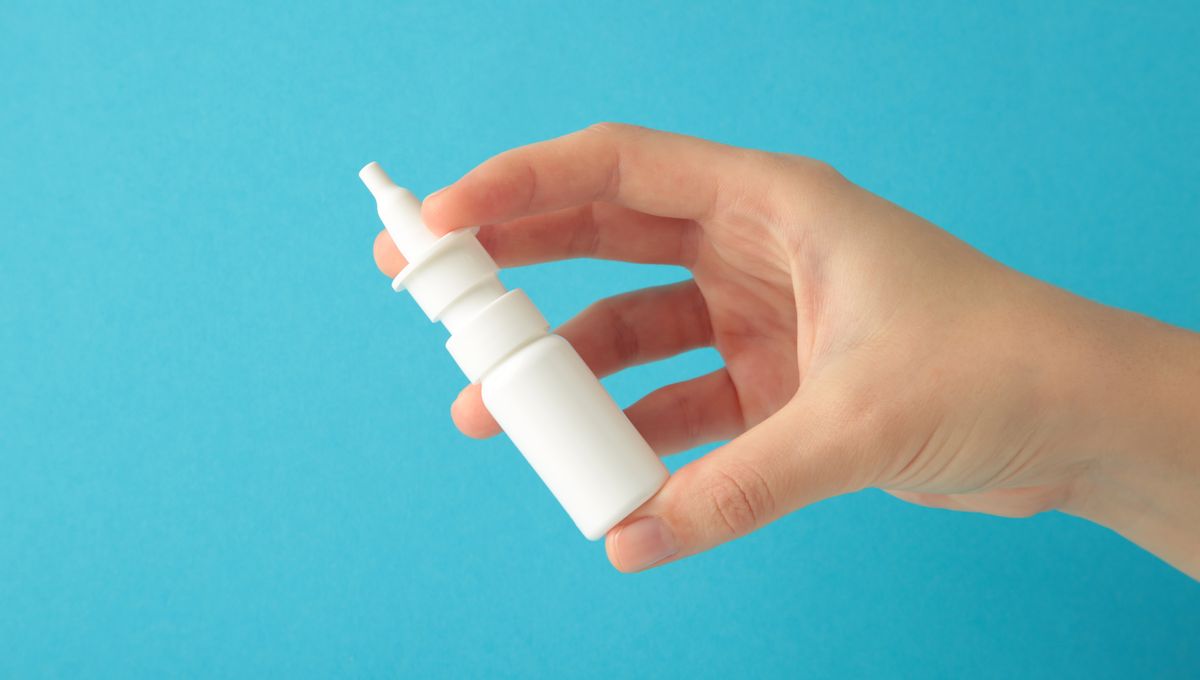
Could football players with a concussion one day be treated with a quick spray up their nose? That could be a possibility one day after a new study found that a monoclonal antibody-based nasal spray helped to promote recovery from traumatic brain injury (TBI) in mice.
ADVERTISEMENT
TBI occurs when the brain is damaged by an external force, like a nasty tackle or a hard punch (or getting pulled over by your dog). This can trigger the activation of microglia, the brain’s specialist immune cells. In turn, they produce a bunch of molecules that promote inflammation in the brain.
A bit of inflammation can be a good thing – it’s part of the healing process – but it becomes a problem when it goes on for too long. TBIs can lead to chronic neuroinflammation in the brain, which can end up damaging healthy cells and interfering with normal brain function – and it’s also been linked to diseases such as Alzheimer’s and Parkinson’s.
“Traumatic brain injury is a leading cause of death and disability — including cognitive decline — and chronic inflammation is one of the key reasons,” said lead author Saef Izzy, MD, FNCS, FAAN, in a statement. “Currently, there is no treatment to prevent the long-term effects of traumatic brain injury.”
Izzy and colleagues are aiming to change that by using an existing antibody, which comes in the form of a nasal spray, to target the neuroinflammatory process.
When they tested the antibody – known as Foralumab – in mouse models of moderate to severe TBI, the team found that it activated regulatory cells that not only improved the ability of microglia to get rid of damaged cells and start restoring the brain’s tissue integrity, but also dampened down their inflammatory effects.
The results suggest that targeting this process helped to reduce brain damage, with mice treated with Foralumab showing more signs of recovery than those who weren’t.
ADVERTISEMENT
“Modulating the neuroinflammatory response correlated with improved neurological outcomes, including less anxiety, cognitive decline, and improved motor skills,” said Izzy.
While promising, it’s important to note that this doesn’t necessarily mean that the same results will be seen in humans. Many drugs that are successfully used in humans were once tested on animal models, but there’s no guarantee that it’ll translate – different species can respond in different ways.
This is an important stepping stone, however, and the team is hopeful that with further research, the nasal spray could make it to the clinic.
“Our patients with traumatic brain injury still don’t have an effective therapeutic to improve their outcomes, so this is a very promising and exciting time to move forward with something that’s backed up with solid science and get it to patients’ bedsides,” said Izzy.
ADVERTISEMENT
It could be pretty useful on the football field too; according to the University of Pittsburgh Medical Center, around 300,000 football-related concussions occur in the US each year.
“We envision giving a nasal spray right there on the sidelines,” said senior author Howard Weiner, MD. “It isn’t something we can do yet, but we see the potential.”
The study is published in the journal Nature Neuroscience.
Source Link: Nasal Spray Shows Potential To Treat Traumatic Brain Injury